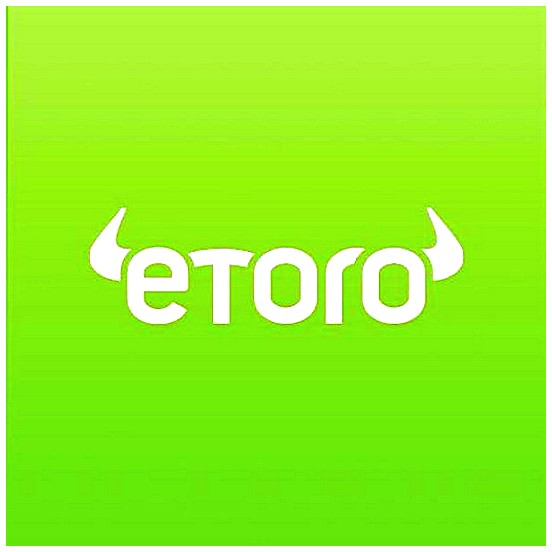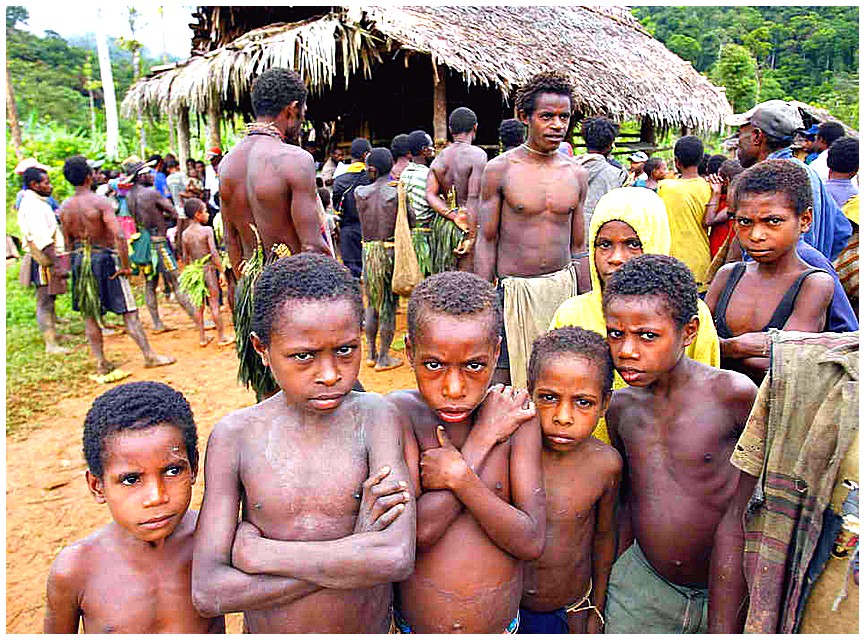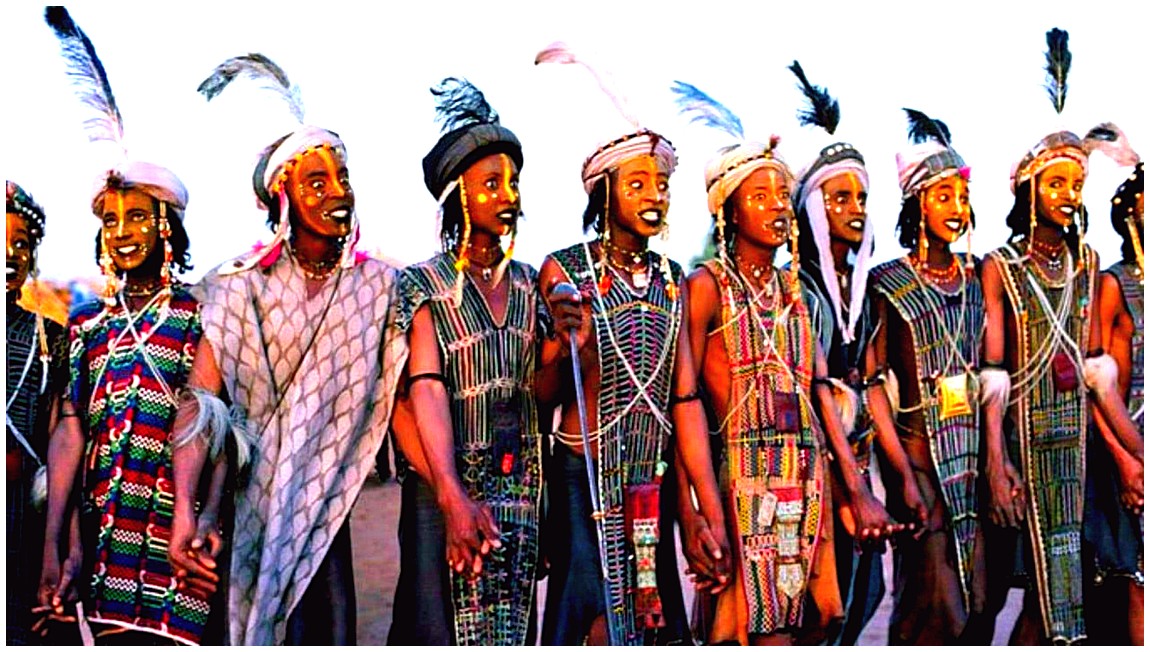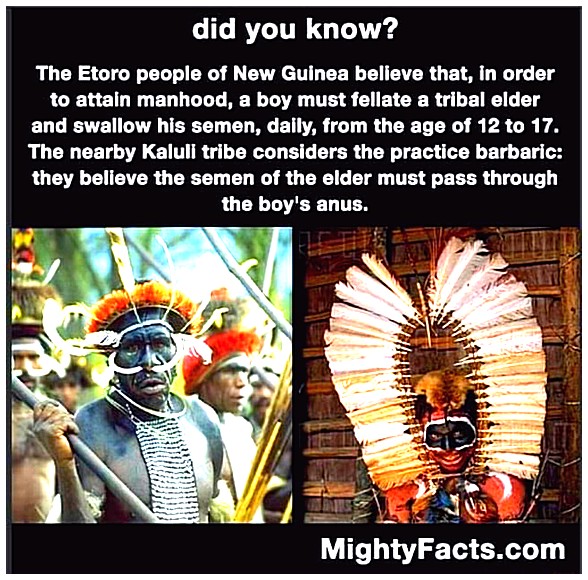Introduction to the Etoro People of Nigeria

The Etoro people of Nigeria are an ethnic group living in the Niger Delta region. They have a rich cultural heritage and unique traditions that have been passed down through generations. In this article, we will explore the history, culture, and customs of the Etoro people. We will also discuss their current challenges and how they are adapting to modern life. Finally, we will look at how outsiders can learn more about this fascinating community. By learning about the Etoro people, we can gain insight into Nigerian culture as well as appreciate their vibrant lifestyle.
History and Origin of the Etoro People

The Etoro people are an ethnic group located in the Niger Delta region of Nigeria. They are believed to have migrated from Cameroon and settled in their current location around the 15th century. The Etoro people have a rich cultural heritage, with traditional beliefs and practices that have been passed down through generations.
The Etoro language is part of the Benue-Congo family of languages, which includes other languages spoken in Nigeria such as Igbo and Yoruba. Their culture has strong ties to nature, with many rituals centered around animals, plants, and other natural elements. In addition to this spiritual connection with nature, they also practice ancestor worship and believe in reincarnation after death.
One unique aspect of their culture is their belief that twins are special children who must be treated differently than other children due to their spiritual power. Twins are seen as having supernatural powers that can bring good luck or bad luck depending on how they’re treated by others; therefore it’s important for them to be respected within the community so as not to incur any negative consequences for those around them.
Today there are estimated to be over one million members of the Etoro people living across Nigeria’s Delta region; however much of their traditional way of life has been lost due to modernization and urbanization over time. Despite this fact, many aspects remain intact such as traditional music styles like highlife music which incorporates elements from both African cultures along with western influences like jazz and rock n’ roll into its soundscape
Traditional Beliefs and Practices of the Etoro People

The Etoro people of Nigeria are an ancient tribe that have maintained their traditional beliefs and practices for centuries. The Etoro believe in a Supreme Being, called Anejomor, who is the creator of all things. They also believe in ancestral spirits and practice ancestor worship as part of their spiritual life.
The Etoro people live by a strict code of conduct known as “Tekpang” which outlines the rules and regulations they must follow to maintain harmony within their community. This includes respecting elders, avoiding gossiping or backbiting, being generous with food and resources, taking care of one another’s needs, honoring agreements made between individuals or groups, and participating in communal activities such as feasts or festivals.
One important aspect of the Etoro culture is the use of music for healing purposes. Music plays an integral role in rituals performed during initiation ceremonies into adulthood or marriage ceremonies where it is believed to help connect participants with ancestral spirits while bringing them closer together as a community. Other musical performances are used to celebrate special occasions such as births or harvests when songs are sung about these events accompanied by dancing and drumming circles around fires at night time gatherings .
In addition to music-making traditions, storytelling is also highly valued among the Etoro people who pass down stories from generation to generation through oral tradition rather than written records. These tales often contain moral lessons about how best to behave within society according to Tekpang principles but can also be entertaining stories about animals or mythical creatures that inhabit local landscapes .
Finally , divination practices form an essential part of everyday life for many members of this tribe who consult fortune tellers on matters related to health , love , family affairs , farming decisions , travel plans etc . Diviners may use various methods including reading bones throwing dice interpreting dreams etc depending on what type information they seek from ancestors .
Social Structure and Gender Roles in Etoro Society

The Etoro people of Nigeria have a complex social structure and gender roles that shape their culture. The Etoro are organized into two main groups: the Ndoki, or commoners, and the Ogboi, or elites. Within these two groups there is a further division based on age and gender. Men are considered to be more powerful than women in the society, with men typically holding positions of authority within both the Ndoki and Ogboi groups.
In terms of marriage customs, men must pay a bride price to marry a woman from either group; however, this practice is slowly being phased out due to its financial burden on families. Women are expected to take care of domestic duties such as cooking and cleaning while men provide for their families by hunting and farming. Additionally, polygamy is allowed among some members of the Etoro community but it is not widely practiced anymore due to economic pressures faced by many households today.
Gender roles also play an important role in religious practices within the Etoro community as well; for example, only men can become priests or shamans who lead spiritual ceremonies like funerals or initiations into adulthood rites-of-passage rituals known as ‘Oko’. Furthermore, certain taboos related to pregnancy exist among some members of this ethnic group which require pregnant women to abstain from certain activities such as eating meat or going near water sources during certain times in order protect her unborn child’s health.
Overall, it is clear that social structure and gender roles play an integral part in shaping how individuals interact with each other within the Etoro community; understanding these dynamics can help us gain insight into how this unique Nigerian culture functions today.
Marriage Customs Amongst the Etoro People
The Etoro people of Nigeria have a unique set of marriage customs that have been passed down through generations. Marriage is an important part of life for the Etoro, and it is seen as a way to strengthen family ties and build social networks.
Marriage among the Etoro typically involves two families coming together in agreement to unite their children in matrimony. The groom’s family will present gifts such as cows or goats to the bride’s family as a sign of commitment and respect. After this exchange, both families will come together for a feast where they can celebrate the union with traditional music and dancing.
In addition to these customary practices, there are also certain rituals that must be performed before marriage can take place. For example, one ritual requires that all potential brides must first prove their fertility by carrying out tasks such as harvesting crops or fetching water from distant sources without any assistance from men or animals. This process helps ensure that only women who are physically fit enough to bear children are allowed into wedlock with members of the Etoro community.
Once married, couples remain devoted partners throughout their lives; divorce is rare amongst the Etoro people due to its cultural taboo status within society at large. As such, marriages tend to last until death do them part – making sure that strong bonds between spouses continue even after death has taken one away from another’s side.
Overall, marriage amongst the Etoro people is seen not just as an act between two individuals but rather something much bigger – something which unites entire communities together in celebration and joyousness while ensuring strong familial connections across generations!
Economic Activities of the Etoro People
The Etoro people of Nigeria are an ethnic group located in the Niger Delta region. They have a long history of economic activities that range from farming and fishing to trading and craftsmanship. Farming is the primary source of income for many Etoro households, with crops such as cassava, yams, maize, rice, millet and sorghum being grown on small family farms. Fishing is also an important activity for the Etoro people; they use traditional methods such as handlines and nets to catch fish from rivers and creeks in their area.
Trading is another major economic activity among the Etoro people; they trade goods like palm oil, wood carvings, textiles and beads with other groups in their region. Craftsmanship is also an important part of their economy; skilled artisans create intricate wooden masks used during ceremonies or sold at markets throughout Nigeria. The Etoro are also known for their skillful weaving techniques which produce beautiful fabrics that can be found in local markets around Nigeria.
Overall, the Etoro people rely heavily on subsistence agriculture but supplement this income through various forms of trade and craftsmanship within their community as well as with neighboring communities outside their own territory. Their unique culture has allowed them to maintain a strong sense of identity despite changes brought about by modernization over time.
Arts, Music, and Dance Traditions of the Etoro People
The Etoro people of Nigeria are an ancient tribe that has maintained their culture and traditions for centuries. They have a rich history of art, music, and dance that reflect their beliefs and values. The Etoro people use art to tell stories about their ancestors, as well as to express themselves in creative ways. Music is also important to the Etoro people; they play drums, flutes, and other instruments during ceremonies or celebrations. Dance is another way for the Etoro people to celebrate life; traditional dances involve intricate steps and gestures that tell stories from their past. By exploring these arts, music, and dance traditions of the Etoro people we can gain insight into this unique culture’s customs and beliefs.
Impact of Christianity on The Culture Of The Etoro People
The Etoro people of Nigeria have a long and complex history, and Christianity has had an undeniable impact on their culture. The introduction of Christianity to the Etoro people dates back to the late 19th century when British missionaries arrived in the area. Since then, many aspects of traditional Etoro culture have been replaced by Christian beliefs and practices.
Christianity has had a profound effect on how the Etoro view themselves as well as their relationship with others. For example, they now practice monogamy instead of polygamy which was traditionally practiced among them before contact with Europeans. They also place greater emphasis on individual rights and freedoms than they did previously, such as allowing women more autonomy in decision-making processes within families or communities. Additionally, some elements of traditional spiritual beliefs are still present but often take a secondary role to Christian faith for many members of this society today.
The influence that Christianity has had on the Etoro is not only evident in religious practices but also social customs and values; there is now greater respect for education amongst younger generations who are encouraged to attend school rather than just work in fields or learn trades from family members like it used to be done before contact with Europeans. There is also less reliance upon ancestral spirits for guidance since most individuals turn towards God instead when seeking answers or help during difficult times in life. Finally, charitable giving has become more commonplace due to teachings found within Christian scripture which encourages followers to give generously without expecting anything in return – something that would have been unheard of prior to European contact!
Challenges Facing The Preservation Of The Culture Of The Etoro People
The Etoro people of Nigeria have a rich and unique culture that has been passed down through generations. However, there are several challenges facing the preservation of this culture in modern times.
One major challenge is the increasing influence of western cultures on the Etoro people. With more exposure to television, movies, and other forms of media from outside their traditional cultural sphere, many young members of the community are beginning to adopt foreign values and practices instead of their own. This can lead to a loss of important traditions as well as an erosion in language skills among younger generations.
Another issue is economic hardship within the community which can make it difficult for families to pass down traditional knowledge or participate in activities related to preserving their culture such as festivals or ceremonies. Additionally, with fewer resources available for education and development projects within rural areas where many Etoro live, it becomes harder for them to access information about their history or engage with others who share similar beliefs and customs.
Finally, climate change poses a serious threat to both the environment that sustains these communities as well as their way of life itself. As temperatures rise due to global warming, agricultural production may become increasingly difficult leading to food insecurity while also disrupting natural habitats which could put certain species at risk including those traditionally hunted by members of this group for subsistence purposes.
These issues demonstrate just how complex preserving cultural heritage can be in today’s world but also highlight why it is so important that we work together towards protecting our shared histories before they disappear forever
Conclusion: Exploring the Rich Heritage Of TheEtiroPeople
Conclusion: Exploring the rich heritage of the Etoro people has revealed a fascinating culture that is steeped in tradition and history. From their intricate art forms to their unique language, there is much to learn from this vibrant group of people. Their commitment to preserving their traditions despite outside influences makes them an inspiring example for other cultures around the world. The Etoro people are a reminder that traditional values can still be maintained even in today’s modern society.
| Etoro People | Other Nigerian Tribes |
|---|---|
| Location: Niger Delta region of Nigeria. | Location: Various regions throughout Nigeria. |
| Language: Edoid languages, including Ijaw and Okrika. | Language: Over 500 different languages spoken in Nigeria, including Hausa, Igbo and Yoruba. |
| Religion: Traditional African religions with some Christian influences. | Religion: Christianity is the most widely practiced religion in Nigeria, followed by Islam and traditional African religions. Some other religious practices are also present such as Buddhism and Hinduism. |
What is the geographic location of the Etoro people?
The Etoro people are an indigenous ethnic group located in the Central Highlands of Papua New Guinea. They inhabit the southern slopes of Mount Sisa and the valley of the Etoro River, which flows into Lake Kutubu.
How long have the Etoro people been living in Nigeria?
The Etoro people have been living in Nigeria for over 500 years.
What are some of the traditional customs and beliefs of the Etoro people?
The Etoro people of Papua New Guinea have a variety of traditional customs and beliefs. These include:
-
Respect for elders – The Etoro believe that older generations possess wisdom and knowledge, which should be respected and honored.
-
Belief in ancestral spirits – Ancestral spirits are believed to protect the tribe from harm, so they are revered by the Etoro people.
-
Rituals related to fertility – Fertility rituals such as initiation ceremonies and ancestor worship help ensure a successful harvest season or good luck with hunting game animals for food.
-
Taboos on certain foods – Certain types of food, such as pork, are considered taboo because they are associated with evil forces or bad luck according to the Etoro belief system.
-
Initiation rites into adulthood – Boys must go through an initiation rite before becoming men in order to gain respect within their community and become accepted members of society
How has globalization impacted the culture and lifestyle of the Etoro people?
Globalization has had a significant impact on the culture and lifestyle of the Etoro people. The introduction of new technologies, goods, and services has allowed for greater access to resources that were previously unavailable or difficult to obtain. This has enabled the Etoro people to become more connected with other cultures around the world, as well as gain exposure to different ways of life. Additionally, globalization has increased economic opportunities for many members of this community by providing them with access to international markets and investments. As a result, some members have been able to improve their standard of living through increased income and improved quality of life. Globalization also brings about changes in cultural norms and values which can be seen in areas such as gender roles, marriage practices, language use, religious beliefs and social customs among others.
Are there any unique art forms or crafts associated with this ethnic group?
Yes, there are unique art forms and crafts associated with many ethnic groups. For example, the Maori of New Zealand have a rich tradition of carving wooden sculptures known as ‘tiki’, while the Inuit people of Canada have an extensive history of creating intricate carvings from soapstone and ivory. The Yoruba people in Nigeria also produce beautiful beadwork, woodcarving, pottery and textiles.
What kind of economic activities do members of this community typically engage in to make a living?
The economic activities that members of this community typically engage in to make a living vary depending on the specific community. Some common examples include farming, fishing, hunting, logging, manufacturing, retail and service industries.
Are there any environmental issues that affect this region specifically, such as deforestation or water pollution?
Yes, there are environmental issues that affect this region specifically. Deforestation is a major issue in the region due to logging and agricultural expansion. Water pollution is also an issue, as industrial runoff and agricultural runoff can contaminate local water sources.
Are there any initiatives being taken by local organizations to preserve and promote traditional practices among this ethnic group?
Yes, there are many initiatives being taken by local organizations to preserve and promote traditional practices among this ethnic group. Examples of such initiatives include the establishment of cultural centers or museums dedicated to preserving and showcasing the culture and history of the group; organizing festivals that celebrate their traditions; offering classes in traditional crafts, music, dance, language, etc.; providing grants for research into the group’s history and culture; working with schools to incorporate elements of the group’s heritage into curricula; collaborating with media outlets to produce documentaries or other programs about the culture; and partnering with local businesses to create products that feature symbols or designs associated with the ethnicity.

05.05.2023 @ 13:46
ples.
Comment:
Les Etoro du Nigeria sont un groupe ethnique vivant dans la région du delta du Niger. Ils ont une riche culture et des traditions uniques qui ont été transmises de génération en génération. Cet article explore lhistoire, la culture et les coutumes des Etoro. Il discute également de leurs défis actuels et de leur adaptation à la vie moderne. En apprenant sur les Etoro, nous pouvons mieux comprendre la culture nigériane et apprécier leur mode de vie vibrant. La musique et les histoires sont des éléments importants de leur culture, qui sont utilisés pour guérir et transmettre des leçons morales. Malgré les défis de la modernisation, les Etoro continuent de maintenir leur culture et leurs traditions.